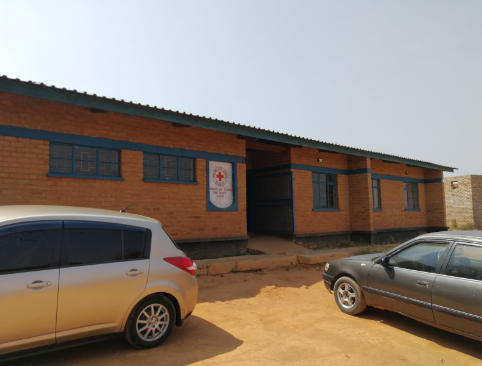
In the late 1990s, Tony Smith, the founder of the British telecommunications company Mobell and a primary sponsor of Seibo, visited Malawi through a family connection. During his visit, he spoke with several women, asking them, “What is most needed here?” Being his first time in Malawi, he wanted to understand the people and their needs. The women quickly replied that what was needed most was “jobs for young people!” Tony was struck by this response, as he had expected them to say food or money. Instead, he learned that creating employment opportunities for the youth was a critical need.
Moved by this insight, Tony made a significant decision. He resolved to use the profits from his business to establish a vocational training center in Malawi to create employment opportunities. He chose to set up the center in Chilomoni, a very poor area of the southern city of Blantyre. This location would later become the base for school meal support. Today, this site is the Mary Queen of Peace Education Campus, where Seibo provides school meals, and adults can receive vocational training.
Located in the township of Chilomoni, Malawi, the Mother Teresa Children’s Centre provides quality care for children in their early years. As it isn’t possible to look after all early years children at this facility the Centre has partnerships with local nurseries and offers a book and toy lending service.
The Centre’s Outreach team teach fellow caregivers in their community how to better care for children and help to improve the learning environment. The Outreach team actively visit neighbourhood nurseries and lead by example in playing with nursery children in order to effectively teach childcare methodology. Training, in the form of workshops, is also offered to ensure Early Years Childcare knowledge is passed on. The Children’s Centre is funded from profits generated by the Beehive Centre for Social Enterprise in Malawi.
Tony launched the Beehive Center for Social Enterprise in 2007. By 2022, it had evolved into two main facilities: the Mary Queen of Peace Education Campus, which offers education from nursery to vocational training, and the Beehive Digital Campus, which focuses on IT-based job training. The Beehive continues to provide education and job opportunities, while Seibo focuses on delivering meals to children. Together, they support the growth of young people in Malawi.
A center that provides for both the dietary and educational needs for its students is unfortunately still not as common in Malawi as in other countries. By hosting students in Chilomoni, the Beehive Center hopes to provide their students with the tools to provide not only for their careers but their own communities.
In 2015, as Beehive continued to grow, Malawi was struck by severe flooding, which tragically claimed the lives of many young children under five. In response, Tony and the Beehive volunteers, along with those involved in the school meal support program he had established, reassessed what was most needed in the area.
Volunteers from Japan, who were working in Malawi through other programs, joined the effort. Representatives from the UK, Malawi, and Japan agreed that expanding school support to provide meals would address both hunger and educational needs. This led to the launch of the Seibo Malawi school meal project.
With Seibo establishing its base of operations near the Beehive Center to facilitate communication between the two organizations, the non-profit began organizing plans in distributing meals to schools in the area. By further dividing the work these two organizations do while still focusing on the common goal of reducing the effects of poverty on local communities, Seibo is able to focus entirely on delivering warm meals to those staying at our daycares and beyond.

Office of Seibo Malawi in Blantyre
Among the Japanese volunteers was Sawako Nevin, who played a pivotal role in establishing Seibo Malawi. To express gratitude to her and in honor of her alma mater in Japan, the name “Seibo” was chosen. “Seibo” means “Holy Mother,” symbolizing the organization’s mission to nurture growth through school meals. Thus, Seibo began its work to combat poverty in Malawi by providing meals and promoting education, aiming to deliver school meals to every child.
“Poverty is not an accident. Like slavery and apartheid, it is man-made and can be removed by the actions of human beings.” – Nelson Mandela

